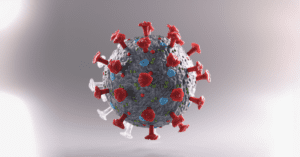
Written by Celeste Suart, PhD
Edited by Eder Xhako
A survey conducted by French researchers examines how people impacted by Spinocerebellar Ataxia view different reproductive health options and sharing information with family members about genetic conditions.
Starting a family is a big decision. There are a lot of things to consider before having kids. For people with ataxia, this decision can be difficult. Certain forms of ataxia are genetic, meaning that there is a risk of passing on ataxia to your children. People with ataxia may go to their doctor for advice on these topics. Understanding genetic risks and learning about family planning options can be complicated.
A team of researchers from France were interested in learning about how people with genetic neurodegenerative disorders, including ataxia, make choices about having children. They had two key questions in their study:
- How does having a genetic condition impact people’s view of reproductive choices?
- Does knowledge of reproductive choices impact people’s decision to share information about their risk of developing ataxia with family members?
To answer these questions, the researchers surveyed 562 individuals with genetic neurodegenerative disorders. This included 114 people impacted by Spinocerebellar Ataxia (SCA). Over half of all the ataxia respondents were people with SCA actively experiencing symptoms. The remaining respondents were spouses without SCA, people at risk for SCA, or individuals with SCA who have not started to show symptoms. The other conditions examined in the survey include Huntington Disease (HD), Steinert Myotonic Dystrophy (MD1), and Amyotrophic Lateral Sclerosis/Frontotemporal Dementia (ALS/FTD).
First, respondents were asked about their opinion about five different types of reproductive options:
- Prenatal Testing: Genetically testing a fetus in utero for SCA genes
- Termination of Pregnancy: Ending a pregnancy if a fetus has SCA
- Preimplantation Genetic Testing: Genetically testing embryos created through IVF for SCA genes, prior to implementing one in the uterus
- Refraining from Pregnancy: Choosing to avoid pregnancy, in order to not pass on SCA
- Gamete Donation: Using donor eggs or sperm without SCA genes, in order to not pass on SCA
The responses from the survey varied slightly when the responses were divided by condition. For people impacted by SCA, 68% thought prenatal testing was justified, while 56% thought terminating a pregnancy was justified. 65% of SCA respondents thought preimplantation genetic testing was justified for people with ataxia. Refraining from pregnancy (36%) and gamete donation (35%) were less popular options amongst SCA respondents.
Next, the researchers asked respondents if knowing about reproductive health options, would motivate them to talk to their relatives about their genetic risk for inheriting or passing on ataxia. The researchers hypothesized that knowing that there are options for avoiding passing on ataxia would encourage individuals to share information with family members. However, they found that only 55% of all respondents said reproductive health options motivated them to speak to their relatives about genetic testing and risks.
This work shows how not all people with Spinocerebellar Ataxia are interested in the same types of family planning strategies. It also highlights how the decision to share medical information with family members about their risk for developing ataxia is complex. This survey reflects the opinions of one group of people impacted by Spinocerebellar Ataxia, it can help clinicians start discussions with their patients about reproductive health options.
Key Words
Gamete Cells: The reproductive cells of a plant or animal. For humans, this includes sperm and egg cells.
Prenatal Testing: A reproductive health technology for genetically testing a fetus in utero for various genetic conditions.
Preimplantation Genetic Testing: A reproductive health technology for genetically testing embryos created through IVF for various genetic conditions. This testing is done to select which embryos to implement into the uterus.
Conflict of Interest Statement
The author and editor have no conflicts of interest to declare.
Citation of Article Reviewed
Pierron, L., Du Montcel, S. T., Heinzmann, A., Coarelli, G., Héron, D., Heide, S., … & Durr, A. (2023). Reproductive choices and intrafamilial communication in neurogenetic diseases with different self-estimated severities. Journal of Medical Genetics, 60(4), 346-351. https://doi.org/10.1136/jmg-2022-108477
Read Other SCAsource Summary Articles

The SCA2 Chronicles: Unmasking COVID-19’s impact on Mind and Movement in a Galaxy Not So Far Away
Written by Kaitlyn Neuman Edited by Celeste Suart, PhD Lessons from a global pandemic: COVID-19 negatively impacts speech function and mental health in SCA2 patients. A short time ago, in a Read More…

Online Speech Therapy program helps improve speech in ataxia
Written by Caroline Spencer, PhD Edited by Celeste Suart, PhD ClearSpeechTogether is a virtual group-based speech therapy program for people with speech problems due to progressive ataxia. In this article, researchers Read More…

SCAview: Grandes datos para grandes preguntas
Escrito por Dr. Celeste Suart Editado por Priscila Pereira Sena Traducido por Ismael Araujo Aliaga Un grupo internacional de investigadores desarrolló una novedosa herramienta para visualizar grandes bases de datos de información Read More…










